“The fight is never about grapes or lettuce. It is always about people” –Cesar Chavez
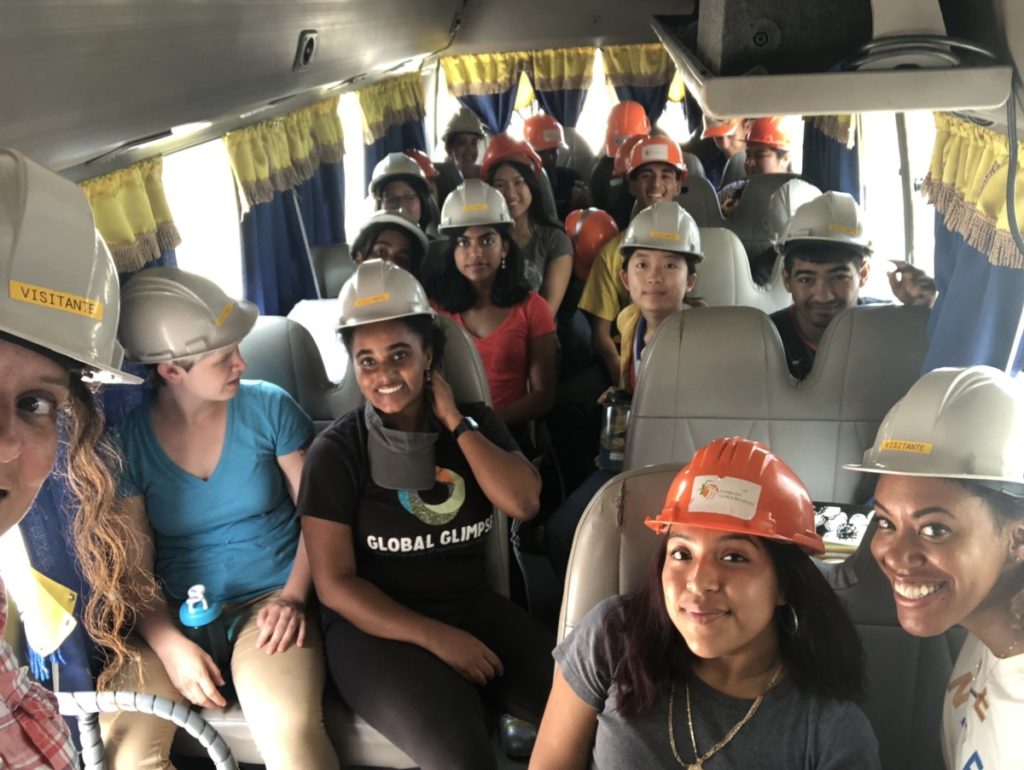
The morning starts off soft, quiet, with the rooster crying on the roof. It’s rushed, with mashed plantains and fried cheese, a thick slice of pineapple. The ride to the sugarcane factory is quickly subdued into a tired kind of silence.
We meet Pablo Gracia, our tour guide for the morning. We shuffle out to the sugarcane fields, listen to a brief history of the company, hold the sugarcane stalk in our hands. We smell it. It doesn’t smell like sugar. It doesn’t smell like anything. Pablo talks of the pesticides used on the fields. And it isn’t until he mentions that we never asked about the health concerns of the pesticides that we are suddenly lurched into an uncomfortable state. It’s an implicit flag to start a barrage of questions. Questions on payment of workers, how often do they get paid, do their payments get delayed. Questions about the facilities, about why we aren’t allowed to take photos of the place where the workers lived, why there were fences built around the living quarters. No photos because people would use them against the company. The fences are for keeping animals from the communities from entering the quarters. Animals.
Pablo blames the racial hierarchy within the company on cultural beliefs. Haitians work instead of Dominicans because the “Dominicans think cutting sugarcane is below them.” Is there an equal opportunity for all workers to rise in status in the company? Yes, because the company provides education to the laborers. We go into the factory with orange hard hats and little metal shoes that made little click-clack sounds when we moved. It’s sickly sweet inside the factory. Sugar. Pleasant at first, but it slowly becomes overbearing, stifling from the humidity of the room. We meet a worker on duty. We ask how much he gets paid. He says he can’t say. Pablo translates it to that he isn’t comfortable with saying.
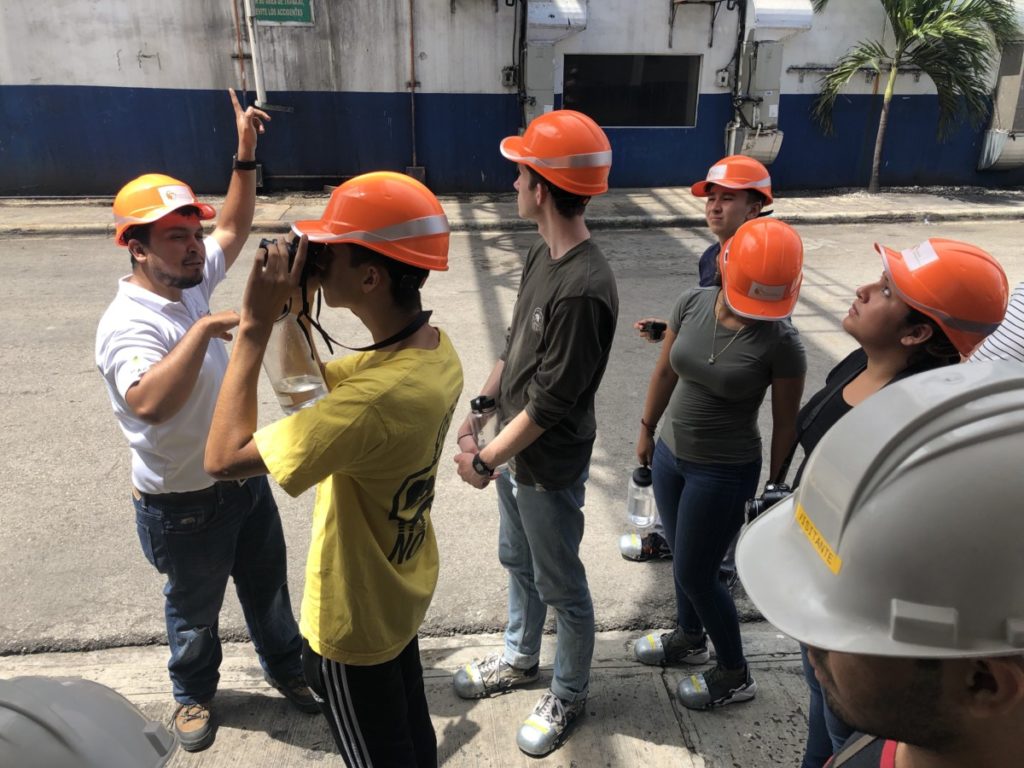
Paulo giving us the tour of the factory.
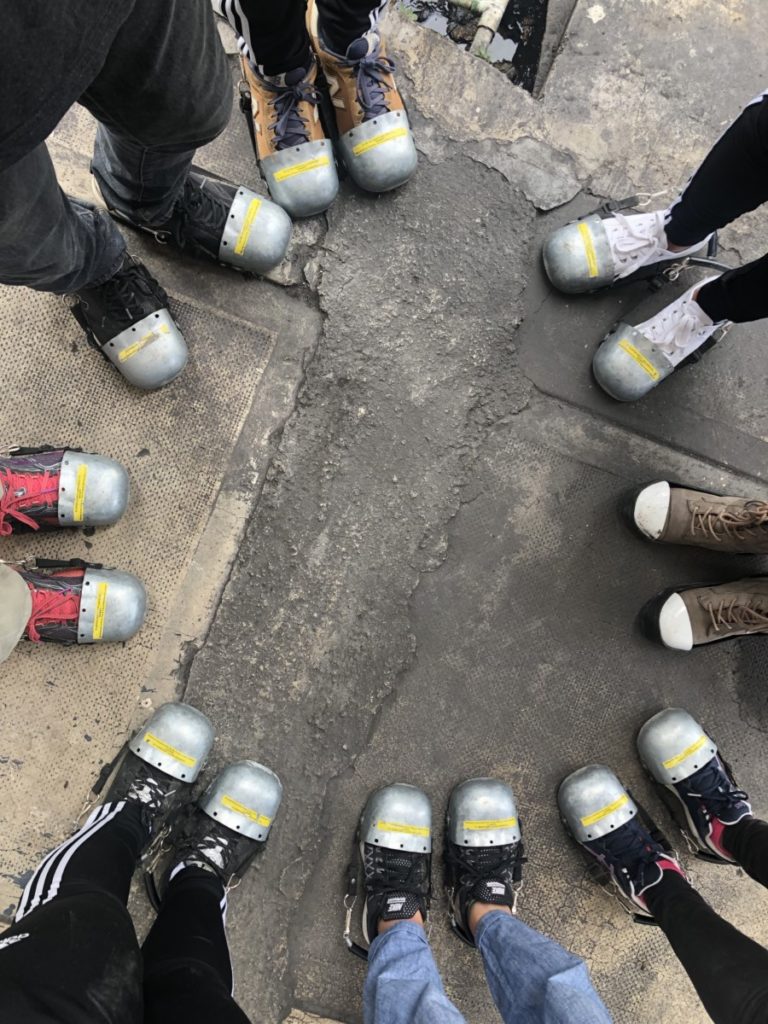
Our shoe protection.
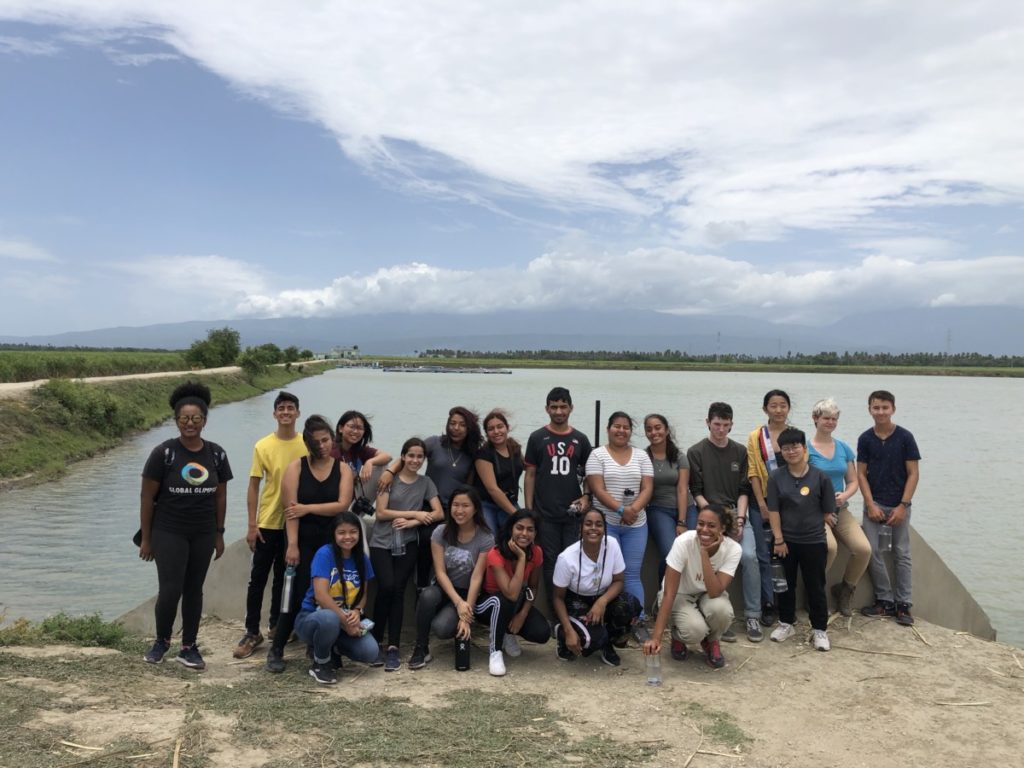
Group picture with Pablo and his fishery.
We visit a village near the sugarcane fields, Batey 6, where the organization group Plataforma Vida was waiting. Lunch was a healthy serving of rice and beans, a vegetable mix, two large pieces of fried chicken. It’s shared over a few community dogs that chase after the thrown chicken bones. There is a bit of laughter within the tiredness that chokes the group. The members of the organization file in. And then the meeting begins.
The meeting is soft, a jumping between long Spanish and translated English. Two members of Plataforma Vida, Reyita and Lugo, among others, give us another perspective. We ask about what Pablo told us. About the fences and the animals. They laugh. They say Pablo lives in a fantasy if he says the fences are for the animals.
They’re for the workers.

Eating and learning from with the Plataforma Vida.
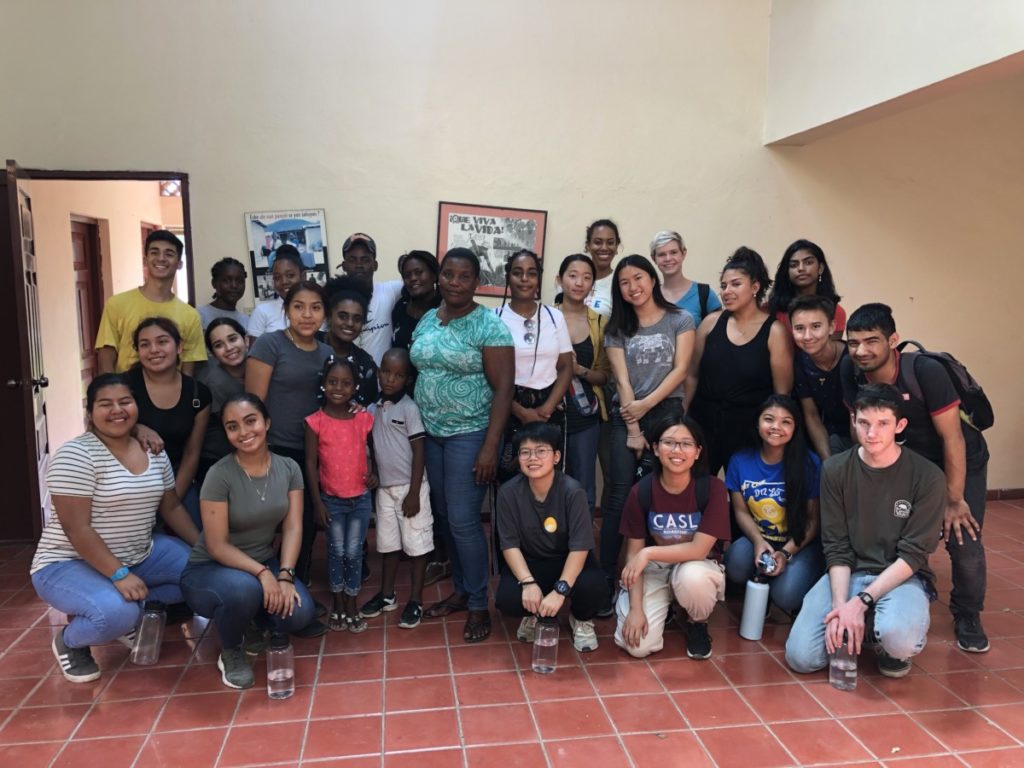
Picture with Plataforma Vida
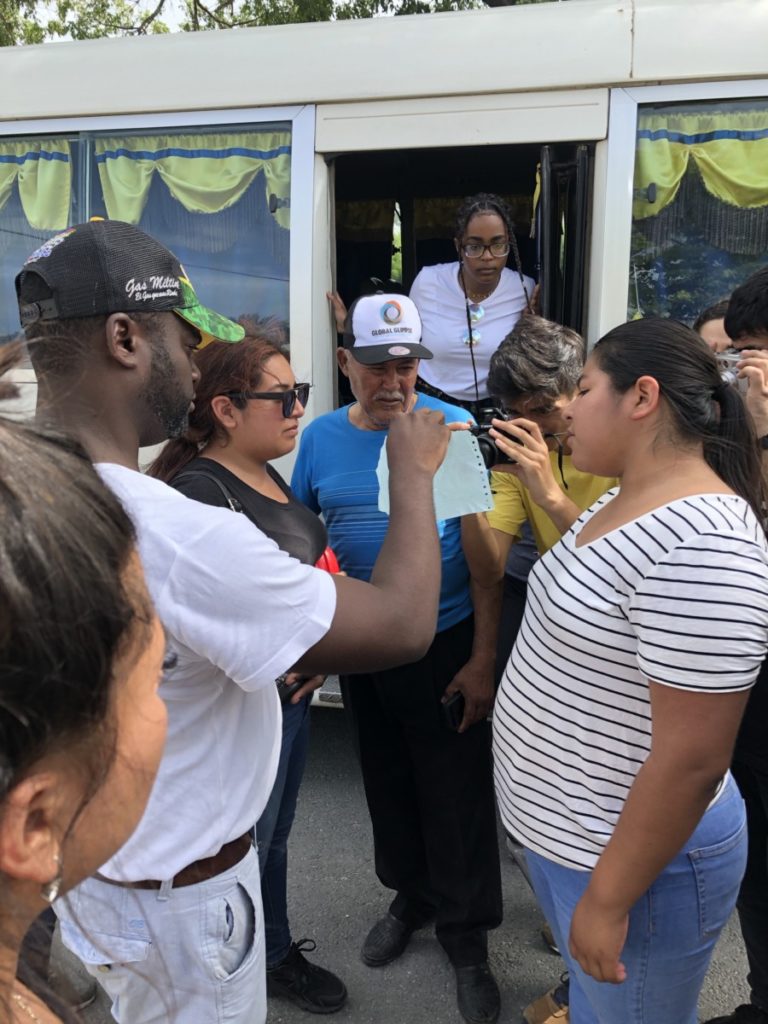
Documenting pay receipts.
Workers aren’t allowed to leave their barracks. No one is ever allowed inside, but it’s very comparable to a prison. “They’re enslaved,” they say. Enslaved. Do workers get paid on time? Yes, but it’s half the amount Pablo claims the company pays them. They’re paid 240 Dominican pesos per day every two weeks $4.80 per day. Pablo claims they’re paid around 700 Dominican pesos per day. There’s disappointment, anger, frustration. The knowledge that Pablo had been lying, embellishing the truth, was a thought that had been brewing within the group since the tour.
We were led out to see two men with Lugo. They’re workers from the sugarcane factory. Thursday is paycheck day. They’re kind men; they smile when we approach them. How long have they been working? Sixteen years. Do they have any hope of advancing in the company? No. No hope. But they’re still doing it. We shake their hands. Firm. Respectful.
The Batey 6 village is lively, filled with people standing outside their houses, children swaying with hands behind their backs. Goats. Many goats. We meet a man resting. His leg is stretched out on a chair in the front of the house. It’s scarred. There a mass under the knee. Was the company paying for the health insurance like Pablo said? They did. They had paid him for a little bit. Then, they fired him. Workers with injuries get paid a portion of their paycheck while they’re on leave, and then. Fired. No longer their responsibility. After shaking his hand, after we continue down the road, a large man who had been observing us from the house came out.
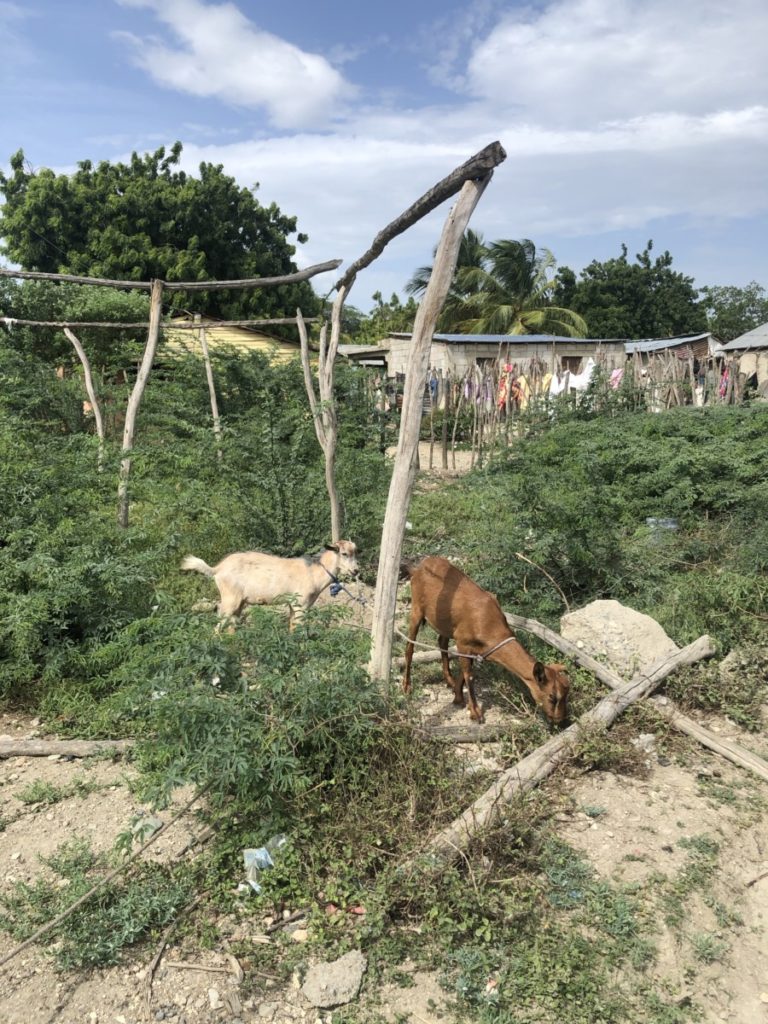
Touring the community
We came back to Onaney to present our community action project: a mural of the founding fathers along with a small garden and sitting area. Quick showers. Stiff clothing. We shuffle up upon a panel of four members of the organization we’re working with, quickly translating between English and Spanish. Concrete replaces wood. The mural design is modified.
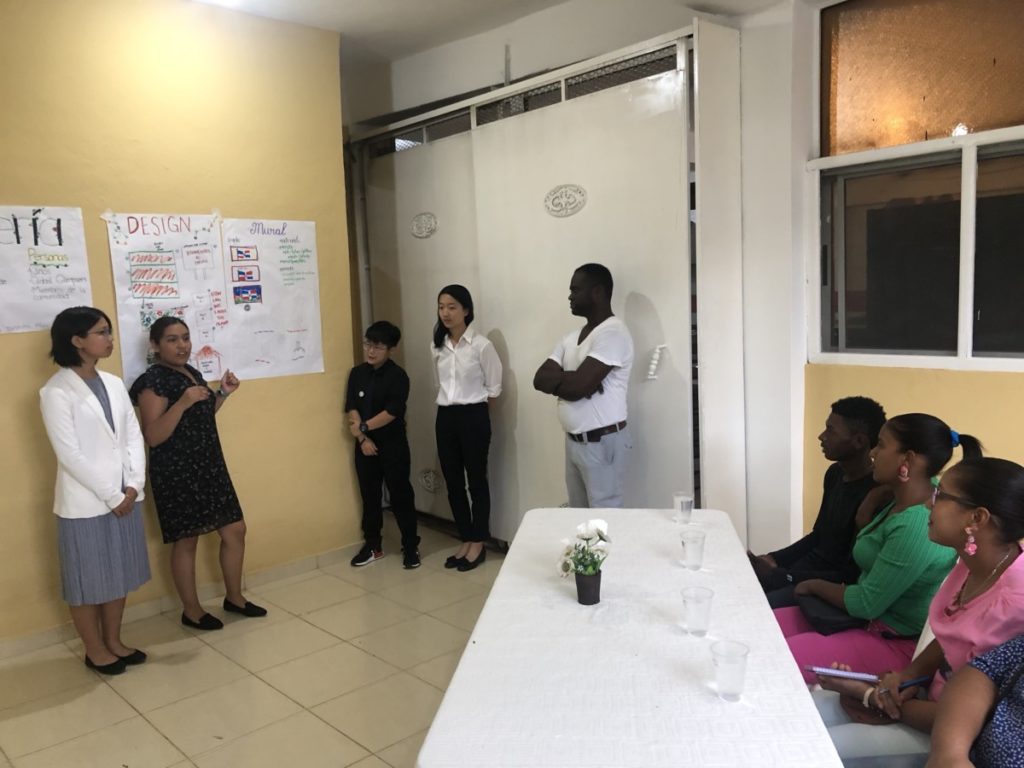
Presenting our CAP project
Being confronted with this image, two men waiting for the same paycheck for the past sixteen years, a man laying with an injured leg with no hope of receiving any help. The slow drawl of Reyita. The tight smile of Pablo while shaking his hand. Exploitation of workers to benefit companies is not a new system. And there are many things to blame for the inequality of life, the discrimination rooted in old history. Government inaction. Unequal distribution of pay. People in places of authority. These are broad things to separate us from the problem that might seem too large to comprehend. But in reality, we as consumers have as much power as we believe. Seeing the tin scraps of the Batey village fences, relating the stories of the workers, seeing the receipt workers get upon receiving their bi-weekly wages. These are images we can give to you.
Because giving this perspective a voice, isn’t that the most important thing?
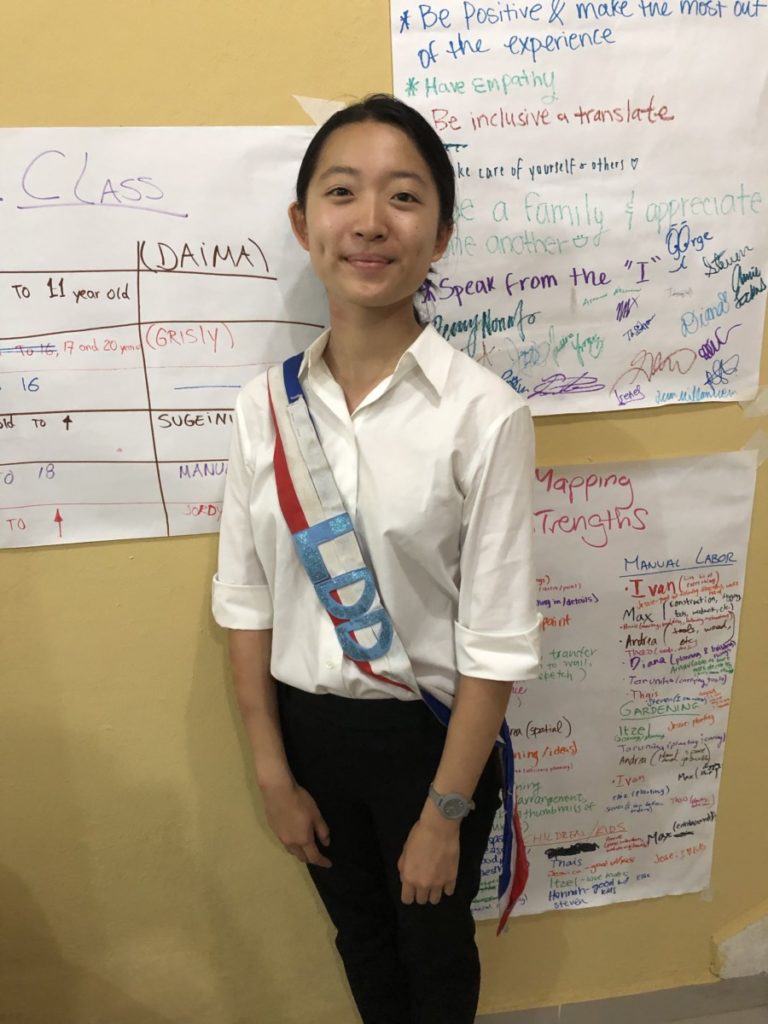
Anna, our amazing Leader of the Day.

Thank you for such informative post.
It’s moving and hopefully will motivate all to become more conscientious.
I’m happy to see that many students are carrying their water bottles, including Andrea.
Good job taking care of your health, Andreis. We miss you, but know that this is a great opportunity. Love you
Mami and Mom
Anna, your writing was beautiful! well done. 👍🏼
Hi Ivan I miss you, hermanito, I watched the Dora movie today and I cried 3 times just thought you should know…. I’ll send you the video when you come home, can’t wait!!
Thais- ollies
Makes me happy to see you happy and hear that you’re doing well, I miss you and so does Jackie 🙁 take care and learn a lot..as you love to do 🙁
I am enjoying reading your blog. I see bright wonderful students and leaders learning and sharing and making a difference in many ways. You are our hope for the future!
Iván i guess you are learning a lot and I love ❤️ to read all the amazing job guys guys been doing we went to camping with out you and we miss you it was our first trip without you but I really hope your enjoying yourself and sorry we couldn’t answer your calls
Somehow I missed this post earlier. Beautiful writing Anna, about the ugly truth and reality.